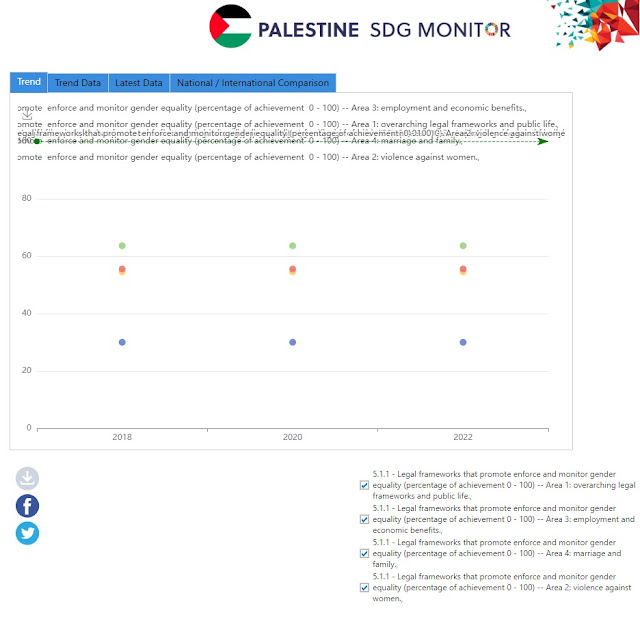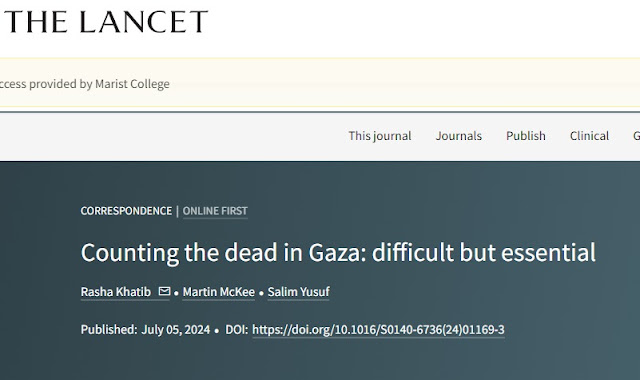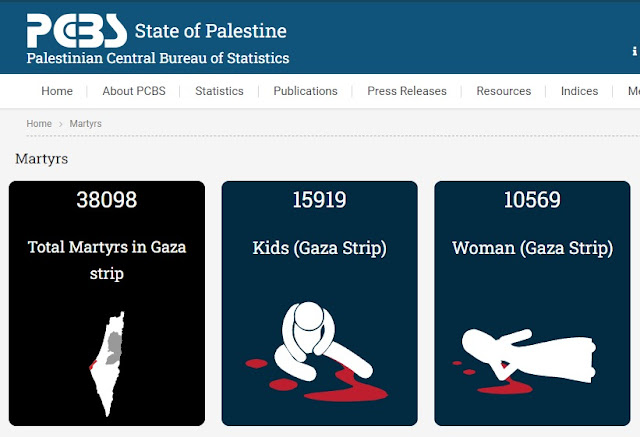Israel helped avert a famine in Gaza but gets no credit
Once the IPC issued its warnings, influential leaders began to insist that a famine in Gaza had already begun. Samantha Power, the Biden Cabinet member who runs the U.S. Agency for International Development, testified before Congress that she had received credible reports of famine setting in. Cindy McCain, head of the U.N.’s World Food Programme and wife of late Sen. John McCain, announced in early May that Gaza was already enduring a “full-blown famine.”Dem Senator Turned Lobbyist Tom Daschle Pressed Biden Admin To Support Infrastructure Projects in Hamas-Controlled Gaza, Emails Show
Ironically, a surge of aid into Gaza had already begun by the time Power and McCain made their assertions. Israeli government data show this to be the case, but so do records kept by the U.N., a rare point of agreement between bitter opponents. Since the war began, the U.N. Relief and Works Agency, the body charged with aiding Palestinians, has made public how many truckloads of goods enter the Gaza Strip. In February, that figure fell to 2,874 truckloads, or fewer than 100 per day. That figure rose to 4,993 in March and 5,671 in April, close to 190 loads per day. There is no good U.N. data for May or June because fighting in southern Gaza disrupted its monitoring efforts. Israel contends the surge continued.
By the end of May, it was clear to those in Gaza that there was no famine, even in northern Gaza, where the IPC projected that conditions would be the worst. Yet a typical headline read, “Access to aid in Gaza was dire. Now, it’s worse.”
On June 25, the IPC released the main conclusions from its updated assessment — the full report is not yet available. The IPC presented facts but cloaked them in language that ensured the media would see only misery, not a catastrophe averted.
In terms of the IPC scale, the percentage of Gaza residents in Phase 5 has fallen from 30% to 15%, despite the IPC’s projection in March that it would increase to 50%. Likewise, the percentage in Phase 4, a rung below famine, declined from 40% to 29%. It would be an understatement to say that the IPC did not emphasize the inaccuracy of its forecast or seek to explain what had changed. Rather, it summarized its findings as follows: “Risk of Famine as 495,000 people face catastrophic acute food insecurity.”
The IPC’s findings received extensive media coverage, as they did in March. And that coverage dutifully echoed the IPC’s message. A sample of headlines includes “High risk of famine persists across Gaza, global hunger monitor says” from Reuters, “Half-million Gazans face ‘catastrophic’ hunger levels, U.N.-backed report says” from the Washington Post, and “Famine will loom over Gaza as long as conflict rages, report warns” from Politico.
In late May, when the surge of aid into Gaza was already having a substantial impact, the prosecutor of the International Criminal Court sought warrants for the arrest of Israeli Prime Minister Benjamin Netanyahu and Defense Minister Yoav Gallant. The first of their alleged war crimes is “starvation of civilians as a method of warfare.”
No effort may be sufficient to get the ICC or the various arms of the U.N. to treat Israel fairly. But it is essential for Americans, from the president on down, to see through the critics’ sleight-of-hand, lest we abandon a loyal ally in its time of greatest need.
Tom Daschle, the former Democratic Senate leader who now heads his own lobbying shop, sought the Biden administration's help to pour massive amounts of infrastructure resources into the Hamas-controlled Gaza Strip, internal State Department emails obtained by the Washington Free Beacon show. The effort would occur in collaboration with both Qatar's Hamas-friendly government and Israel's then left-leaning government, the former leader said.
Daschle—who represented South Dakota in the upper chamber for 18 years and led the Senate Democratic Caucus from 1995 to 2005—wrote to Secretary of State Antony Blinken's chief of staff in October 2021 to ask for Blinken's help transferring goods into Gaza. His email was subsequently "tasked" to the State Department’s Bureau of Near Eastern Affairs "for appropriate action" and forwarded to officials throughout the building.
"I understand that Tony [Blinken] will be having a bilateral meeting with Israeli FM Lapid," Daschle wrote, referring to Yair Lapid, who served as foreign minister at the time. "We are part of a U.S.-based consortium, which has been working with the governments of Qatar and Israel on infrastructure investments in Gaza and the U.S." The initiative, Daschle said, had broad support inside Israel's government.
"Lapid is aware and very supportive of this effort, as it fits neatly with his new vision for Gaza, which has infrastructure development in Gaza at its core," Daschle wrote. "If Tony were willing to raise this issue, FM Lapid could elaborate on its tremendous potential. As this seems to align with what they are planning to discuss, and Minister Lapid has specifically raised it with our team."
"I realize time is short," Daschle added, "but we would be happy to brief you, him, or someone on the staff."
The email sheds new light on the scope and key players behind the Biden administration’s early efforts to pour what would ultimately become hundreds of millions of dollars into Hamas-controlled areas of the Gaza Strip. The policy, the full extent of which has never been clarified, is the subject of significant domestic and international criticism in the wake of the Iran-backed terror group’s Oct. 7 terrorist attack against Israel. The funding projects, critics say, allowed Hamas to steal aid resources and bolster its military capabilities ahead of last year’s attack.
The emails were first obtained through a Freedom of Information Act Request by the America First Legal Foundation, a watchdog group that is suing the State Department over allegations it engaged in an "illegal and dangerous $1.5 billion terrorism subsidy program for the Palestinians." At least four pages describing Daschle's proposal—titled, "U.S, Israel, Qatar Strategic Initiative"—were fully redacted by the State Department, which declined to clarify if any action was ultimately taken in regards to Daschle’s request for support, or if U.S. officials pursued any of the proposals laid out.
Daschle did not respond to a request for comment.
Daschle’s note was designated "for appropriate handling" and quickly forwarded throughout the State Department and to several senior Blinken aides, including Hady Amr, now the Biden administration's special representative for Palestinian affairs.
"I wanted you to be aware of the email that Tom Daschle sent to [Blinken chief of staff] Suzy George about an infrastructure investment project in Gaza," one internal email states.






.jpeg)












































